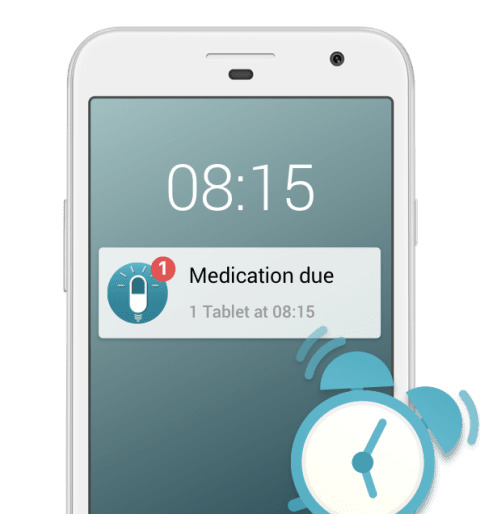Anxiety disorders, including depression, are the most common type of mental illness and affect more than 264 million people globally. If you experience frequent thoughts such as “I hate my life” you may be suffering from clinical depression. Depression is treatable, and it is important to understand the risk factors, symptoms, and diagnosis to know when you need to seek help.
If you are experiencing suicidal thoughts, click here for resources.
Risk Factors:
Depression is a mental disorder capable of affecting anyone at almost any age, making it one of the hardest illnesses to identify specific causes. However, research does suggest that several risk factors may contribute to an individual’s chances of developing depression.
Female Sex Hormones:
An estimated 10-15% of the world’s population will likely experience clinical depression at some point in their life with women being more likely to experience depressive episodes. It is believed that women may develop depression due to hormonal fluctuations during menstruation, pregnancy, childbirth, and perimenopause. However, after women go through menopause, they are less likely to develop depression.
Brain Chemistry Imbalances:
One potential cause of depression is an imbalance within the brain’s neurotransmitters, responsible for regulating mood. Neurotransmitters such as dopamine, serotonin, and norepinephrine can greatly affect people’s mood and overall mental health. When there are too few of these neurotransmitters, symptoms may appear that can lead to a diagnosis of clinical depression.
Despite this being one of the most frequently referred to risk factors and causes of depression, it is not proven. For that reason, many researchers believe a combination of factors is what leads to depression. Even so, when treating depression, typically the neurotransmitters are a focus; SSRIs, SNRIs, MAOIs, and TCAs all work to regulate brain chemicals.
Physical Health:
The mind and body have a clear link, this means that when you are experiencing a physical illness or are just in generally poor physical health, your mental health may also suffer. The increased levels of stress that a person experiences while suffering from a chronic illness may lead to depression. However, in some cases, the disease itself (JHD, for instance) may cause symptoms of depression.
Family History & Genetics:
Studies have shown that people with a family history of depression are more likely to develop the illness themselves. Some estimates even suggest that depression is approximately 40% determined by genetics. It is still unclear which genes specifically are responsible for developing mood disorders. Despite genes’ important role in developing depression, most researchers believe genetics alone typically will not cause depression. They instead believe that genes, when paired with other environmental factors, can lead to the development of the condition.
Lifestyle:
Many of the factors discussed are entirely out of control of the individual. However, there are lifestyle factors that researchers believe contribute to developing clinical depression. One such factor is diet; people who have vitamin and mineral deficiencies are more prone to developing symptoms of depression. Another common cause is stress; sometimes a stressful life event or series of life events can overwhelm a person’s ability to cope, leading to depression. Additionally, substance abuse has been linked to developing clinical depression. This can be prescription or recreational drugs as well as alcohol.
Signs and Symptoms:
The symptoms of depression vary widely between people and can be extremely complex. The symptoms may range from social to physical and can persist for anywhere between weeks and years. The symptoms listed on this page are not a complete list but some of the most common.
Psychological Symptoms:
- Continuous feeling of sadness
- Hopelessness
- Low self-esteem
- Irritability
- Anxiety
- Lack of motivation
- Not enjoying activities that you typically would
- Thoughts such as “I hate my life”
- Suicidal thoughts
Physical Symptoms:
- Lethargy
- Changes in appetite
- Unexplained aches and pains
- Constipation
- Loss of libido
- Changes to menstruation
- Insomnia
Social Symptoms:
- Becoming increasingly reclusive
- Neglecting normal interests or hobbies
- Experiencing difficulties in personal or professional relationships
If you find yourself experiencing these symptoms you should speak with your doctor or a therapist. If you find yourself experiencing suicidal thoughts click here for a list of hotlines around the world.
If you speak with your doctor or a therapist about depression, there are no physical tests that can be carried out for diagnosing the illness. Typically, a diagnosis will involve a series of questions about your feelings and general health. Patients must be open and honest so they can receive the most accurate diagnosis and best help possible.
Treatment:
Typically, when treating depression there is no one approach that will be entirely effective. In general, patients can expect to work with a combination of self-help, therapy sessions, and medication. The type of treatment necessary also can vary widely based on the severity of depression. In some cases, where the depression is short-term and mild, doctors may suggest waiting two weeks to see if it goes away on its own.
Self-help and exercise:
While it is always good to seek professional help, there are steps individuals can take to improve their mental health on their own as well. Searching for self-help groups may be a good first step and can help with feelings of loneliness. If the depression is relatively mild, exercise may be able to greatly reduce symptoms.
Therapy:
There is a wide range of therapies available to those suffering from depression. One of the most common is CBT or cognitive behavioral therapy. CBT works to help individuals better understand their thoughts and behaviors and teaches them how to control them more effectively. Another common practice is counseling. Counseling is a form of therapy where patients can work through the problems they may be experiencing in their life and can find new ways to deal with them better. Depending on the symptoms of an individual’s depression, IPT, or interpersonal therapy may be effective. IBT places a focus on the individual’s relationships with others and helps them improve them and maintain healthy relationships.
Medication:
There is a huge range of drugs that may be used to treat depression, most of them fall under the umbrella term ‘antidepressant’. Antidepressants may include SSRIs (selective serotonin reuptake inhibitors), TCAs (Tricyclic antidepressants), or SNRIs (serotonin-noradrenaline reuptake inhibitors). Each of these categories of drugs works to improve the balance of chemicals in the brain responsible for mood changes. The time that drug treatments take to be effective can vary. However, typically patients report some improvement in their symptoms within four weeks, if not, they may be switched to another medication.
If you believe you are suffering from depression, seek help. If you are experiencing suicidal thoughts, click here.
Here are some other blogs we think you may be interested in:
“Yes, I’m Living With Depression. This Is How You Can Help Me.”



